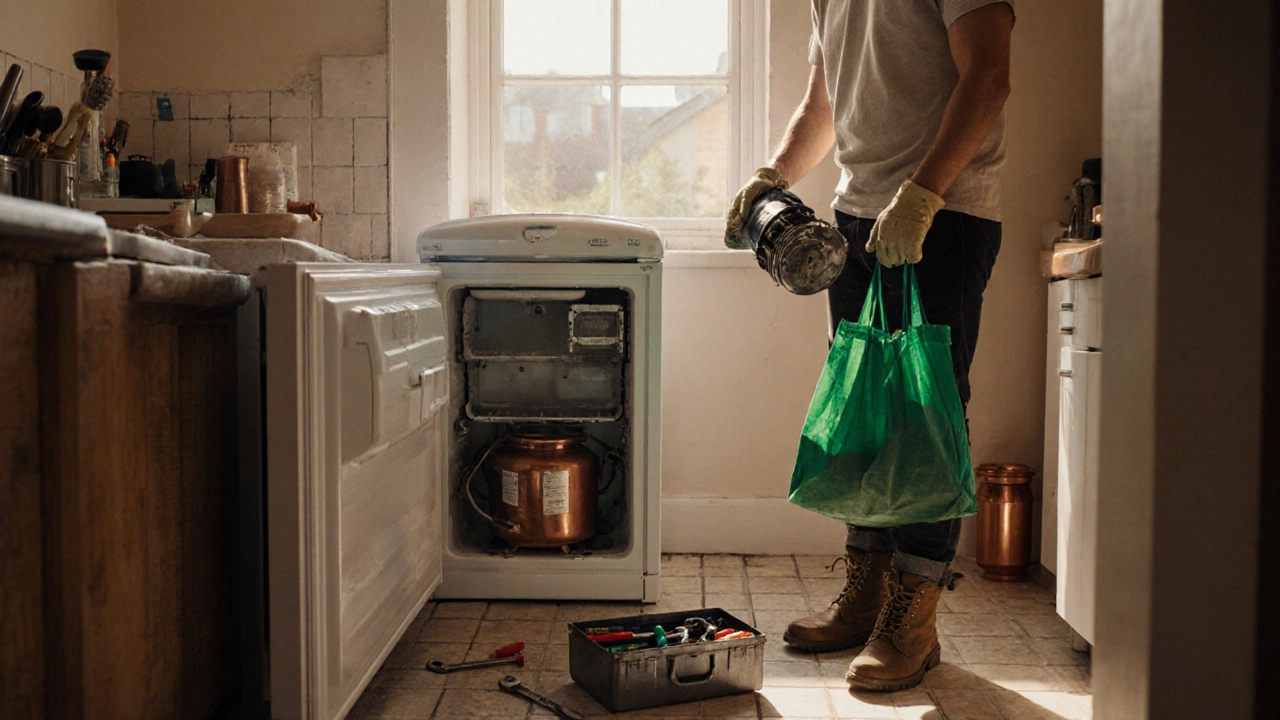Find out if swapping out a freezer compressor makes financial sense. Compare costs, weigh risks, and learn a step‑by‑step DIY guide.
Compressor Lifespan – What to Expect and How to Extend It
If you’ve ever had a washing machine that stopped spinning or a fridge that stopped cooling, the culprit is often the compressor. That metal heart of many appliances works hard, and its life can vary a lot. Knowing the typical lifespan and the things that wear it out helps you avoid surprise breakdowns and costly repairs.
Typical Life Expectancy of Common Compressors
For most household appliances, a compressor will last between 8 and 15 years. Refrigerators and freezers tend to be on the longer side – 10 to 15 years – because they run continuously but at a steady, moderate load. Washing machines and dryer compressors usually hit 8 to 12 years; they cycle on and off with heavy loads, so wear builds up faster. Air‑conditioner compressors are a bit more variable: a well‑maintained split unit can push 12 years, while a window unit might only see 7 to 10 years.
These numbers are averages. The exact figure depends on brand quality, how often the appliance runs, and how well you look after it.
Factors That Shorten Compressor Life
1. Heat and Poor Ventilation – A compressor that can’t breathe will overheat. Keep vents clear and avoid stacking items on top of a fridge or dryer.
2. Power Surges – Sudden spikes can fry motor windings. Using a surge protector for large appliances adds a cheap layer of protection.
3. Hard Starts – If the motor has to work extra hard to get moving, the start‑capacitor wears out faster. Listen for a loud click or a sluggish start; that’s a sign the capacitor may need replacement.
4. Low Refrigerant (for ACs and Fridges) – A leak forces the compressor to run longer to keep temps down, which speeds up wear.
5. Dirty Coils and Filters – Dirt forces the compressor to work harder. Clean condenser coils on fridges and air conditioners at least once a year.
Skipping regular maintenance is the fastest way to shorten a compressor’s life.
Here’s a quick checklist you can follow every spring:
- Unplug the appliance and clean any dust from vents and coils.
- Check the power cord for cracks or signs of wear.
- Listen for unusual noises – rattling or grinding often means internal wear.
- Make sure the appliance sits level; an uneven base adds strain.
Following these steps can add a few years to a compressor’s service life.
When a compressor finally gives up, the signs are usually easy to spot. The appliance won’t cool, heat, or spin as it should. You might hear the motor humming without any movement, or notice that the unit stays warm even after a long run. If you see these symptoms, call a professional. Attempting a DIY fix on a sealed compressor can be dangerous and often leads to bigger problems.
In many cases, replacing the whole appliance is cheaper than swapping out a compressor, especially for older models. However, if the unit is less than five years old and still under warranty, a compressor replacement can be a smart move.
Bottom line: a compressor can easily last a decade if you keep it cool, protect it from power spikes, and give it a regular cleaning. Pay attention to the warning signs, and you’ll know exactly when to call in an expert before a tiny issue becomes a big expense.

